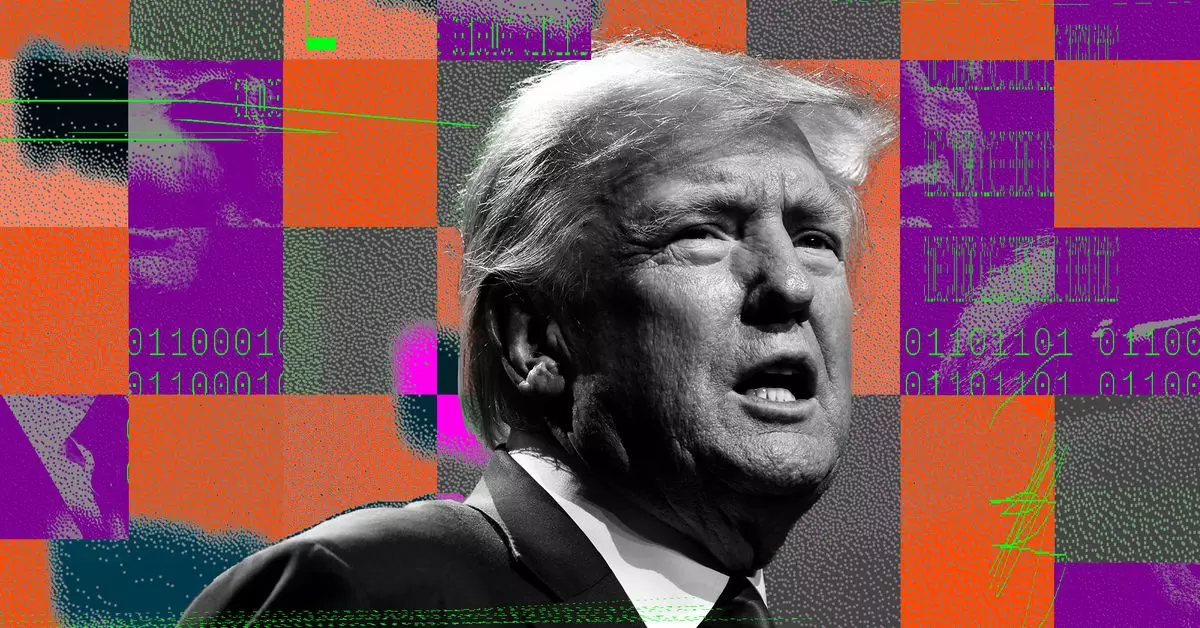The intricacies surrounding the ongoing saga of TikTok in the United States highlight a compelling blend of technology, politics, and national security. As the platform faces potential bans primarily due to its connection with China and concerns over user data, President-elect Donald Trump’s recent actions bring additional layers to this already convoluted situation.
In a bold move, Trump has asked the Supreme Court to permit negotiations that could halt an impending ban on TikTok, citing the necessity to resolve the issue through political avenues as he assumes office. This request, articulated in an amicus brief, underscores Trump’s claim of possessing an unparalleled capacity for deal-making—a factor he believes is integral to saving the platform. However, the implications of this statement raise questions about the appropriateness of political maneuvering in what is fundamentally a media and data security issue.
The Supreme Court’s willingness to hear arguments regarding the constitutionality of a bill banning TikTok presents an opportunity for an in-depth exploration of First Amendment rights. Proponents and opponents of the ban argue fiercely about the implications for free speech and governmental overreach. The fact that the bill allows the sitting president to potentially postpone enforcement if negotiations are constructive adds an even more contentious element to this legal quagmire.
One of the most critical aspects of Trump’s request is the January 19 deadline, which looms ominously just before his inauguration. This timeframe could serve as a pivotal point in determining TikTok’s fate in the U.S. If the Supreme Court agrees to delay the enforcement of the ban in light of potential negotiations, it may set a precedent for how similar situations will be handled in the future. The junction between the judicial branch’s influence and political expediency raises ethical concerns about the integrity of democratic processes.
Moreover, Trump’s claim of possessing a “unique ability” to evaluate TikTok’s significance due to his followers and ownership of Truth Social complicates the narrative further. By asserting his connection to the platform, Trump appears to blur the boundaries between personal political ambitions and broader societal implications, suggesting that his interests may not align with the general welfare of users or with genuine national security concerns.
While Trump did not outline specifics regarding the proposed negotiation deal, it is evident that any resolution would likely necessitate significant changes in TikTok’s ownership structure. The idea of ByteDance divesting a substantial stake in the app to appease security concerns is not a new one; however, it is fraught with challenges—both legal and operational. Moreover, Trump’s past aggressive stance against TikTok, which aimed to ban its usage outright, adds an element of unpredictability regarding his current approach.
Further complicating matters, the recent conduct of political figures underscores the bipartisan nature of the scrutiny surrounding TikTok. High-profile senators have rallied in support of the ban, demonstrating that this issue transcends traditional party lines and touches on broader values regarding privacy, data security, and the implications of foreign influence on American citizens.
The ramifications of Trump’s renewed interest in TikTok are mirrored in the larger context of social media’s role in contemporary political landscapes. The potential for governmental bans on platforms like TikTok raises alarms about the extent of state control over digital communication channels and the precedent this sets for future platforms. The case of Brazil’s temporary ban on Elon Musk’s X serves as a cautionary tale of governmental power over expression and innovation.
In this digitally connected age, where social media platforms are often seen as modern public squares, the incursion of state intervention calls for vigilant scrutiny. As Trump navigates through these challenges, he must contend with an evolving media landscape and a populace wary of governmental overreach. The future of TikTok, thus, stands as a barometer for broader societal values concerning freedom of expression, state control, and the responsibilities of technology in democracy.
The discussions surrounding TikTok extend beyond a singular app; they highlight crucial tensions that define the relationships among government, technology, and the rights of citizens. As Trump seeks a way forward, it will be imperative for all stakeholders—government officials, tech companies, and the public—to engage thoughtfully in these debates to safeguard democratic ideals while addressing legitimate security concerns.


Leave a Reply